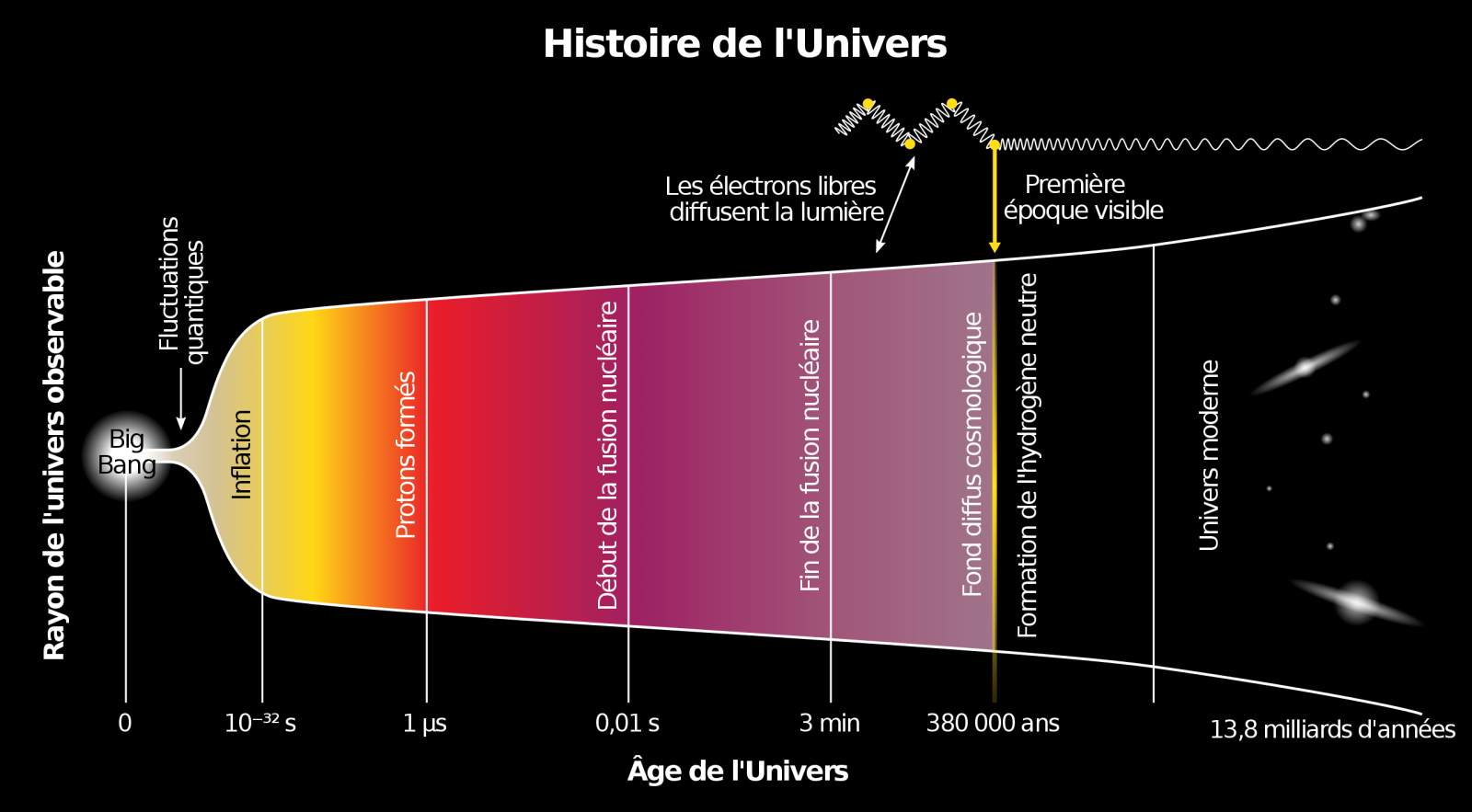This model posits that the Universe has no dark matter, while still respecting observations
Follow us on Google News (click on ☆)
A study from the University of Ottawa, published in The Astrophysical Journal, challenges the accepted composition of the Universe, which is thought to include dark matter alongside ordinary matter and dark energy. This new model, developed by Rajendra Gupta, a physics professor, is based on the combination of Covariant Coupling Constants (CCC) theories and "tired light" (TL), designated as the CCC+TL model.

The scenario of the Universe's expansion from the Big Bang to the present according to the current model.
Image Wikimedia
The CCC+TL model posits that the forces of nature decrease over cosmological time and that light loses energy over long distances. This approach offers an alternative explanation for the distribution of galaxies and the evolution of light from the early Universe, without resorting to dark matter. This hypothesis contradicts the traditional view that the Universe is composed of about 27% dark matter, with less than 5% ordinary matter, the rest being dark energy.
The study is based on the analysis of recent data on the galaxy distribution at low redshifts and the angular size of the sound horizon in the early Universe. These observations, compared to the CCC+TL model, suggest that the Universe could dispense with dark matter to explain its expansion and structure.
This conclusion opens the door to a new understanding of the Universe, by challenging the role attributed to dark matter and dark energy in its expansion. Instead, it highlights the idea that this expansion could be due to the weakening of the forces of nature.
Gupta emphasizes that this study confirms the results of previous work indicating that the Universe might be older than previously thought, thus reinforcing the idea that standard cosmology might require revision. His work represents a significant advance in questioning the cosmological existence of dark matter, while still being in agreement with key cosmological observations.